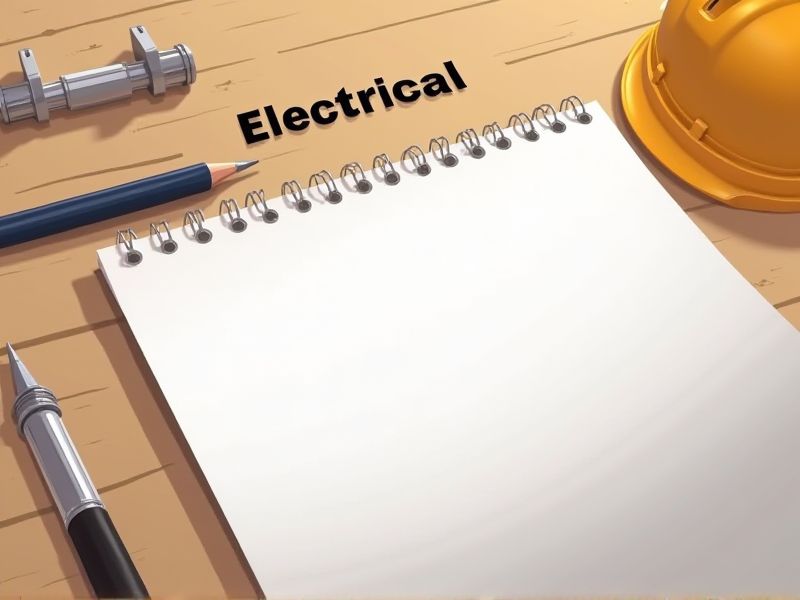
Electrical contractors require certain certifications to ensure proficiency and compliance with industry regulations, which mitigates risks and ensures safety in all electrical operations. Holding relevant certifications enhances credibility and trust with clients, demonstrating a contractor's commitment to high standards and quality workmanship. Moreover, it provides contractors with advanced technical knowledge, keeping them updated with the latest advancements and requirements in the electrical field. Important certifications you may need for an electrical contractor include those related to safety standards, specialized installations, and technology updates.
State Electrical Contractor License
State Electrical Contractor Licenses ensure that contractors meet standardized safety and competence criteria, reducing electrical hazards and accidents. Compliance with state regulations through licensing helps maintain public trust in the quality and reliability of electrical work. Licensed contractors are more likely to be informed about the latest electrical codes and practices, leading to safer installations and repairs. Insurance companies often require contractors to be licensed, which protects both the contractor and the client in case of damages or liability issues.
Master Electrician Certification
Obtaining a Master Electrician Certification establishes a contractor's advanced knowledge and skills, which is paramount in ensuring the safety and efficiency of electrical systems. This certification often leads to enhanced credibility and trust with clients, potentially increasing business opportunities. It typically enables an electrician to legally pull permits and oversee more complex projects, aligning with regulatory requirements. Possessing such certification also generally allows the holder to train, mentor, and supervise other electricians, fostering a more competent workforce.
Journeyman Electrician Certification
Having a Journeyman Electrician Certification ensures the individual has the necessary technical skills and knowledge to handle complex electrical systems safely. Electrical contractors with this certification are more trusted by clients and employers, increasing job opportunities and potential earnings. Legal regulations in many regions require such certifications to ensure compliance with safety standards and reduce liability risks. Projects completed by certified electricians are often more reliable, reducing maintenance costs and enhancing customer satisfaction.
National Electrical Code (NEC) Certification
National Electrical Code (NEC) Certification ensures uniform safety standards in electrical installations, reducing the risk of fire and electrical hazards. Electrical contractors with NEC certification demonstrate their knowledge and compliance with established industry practices, instilling trust in clients and regulators. This certification can be a requirement for obtaining work permits or bidding on projects, influencing access to business opportunities. NEC compliance can also help contractors avoid costly legal liabilities and penalties associated with safety violations.
OSHA 30-Hour Construction Safety Certification
Electrical contractors face heightened risks of electrocution, falls, and equipment-related injuries, necessitating comprehensive safety training. The OSHA 30-Hour Construction Safety Certification provides an extensive overview of crucial safety practices, reducing the likelihood of workplace accidents. This certification aligns with regulatory compliance, safeguarding contractors from legal penalties and financial losses connected to workplace incidents. Employers often require this certification, increasing a contractor's job prospects and credibility in the industry.
NFPA 70E Electrical Safety Certification
Achieving NFPA 70E Electrical Safety Certification underscores an electrical contractor's commitment to adhering to national standards for safe work practices and procedures, thereby minimizing workplace accidents. Compliance with NFPA 70E reduces the likelihood of electrical injuries by fostering a deep understanding of hazard awareness and risk assessment. This certification enhances an electrical contractor's credibility with clients by demonstrating a dedication to safety and regulatory compliance. Maintaining such certification can lead to better project bids and insurance premiums, as insurers often recognize certified contractors as lower-risk entities.
Electrical Project Management Certification
Electrical Project Management Certification enhances an electrical contractor's ability to efficiently plan, execute, and complete large-scale projects by providing specialized training. With this certification, the contractor gains a competitive advantage, as it signifies a higher level of expertise and commitment to quality standards. The certification often leads to increased client trust, resulting in more opportunities and potential for higher revenue. Certified contractors are likely to demonstrate improved risk management skills, reducing the likelihood of project delays and cost overruns.
Building Industry Consulting Service International (BICSI) Technician Certification
BICSI Technician Certification enhances an electrical contractor's credibility, often leading to increased client trust and more job opportunities. This certification ensures contractors are well-versed in industry standards and best practices, reducing the likelihood of errors in complex projects. As telecommunication systems become more integral to building infrastructure, having BICSI-certified technicians meets a growing demand for specialized knowledge. With advances in technology and the expansion of smart building systems, the certification equips technicians with the skills necessary to handle evolving industry challenges efficiently.
LEED Accredited Professional (LEED AP)
Electrical contractors benefit from having a LEED Accredited Professional because it helps ensure energy-efficient designs, crucial for meeting sustainability goals. Their expertise assists in planning and executing projects that align with green building standards, impacting a building's LEED certification potential. This knowledge reduces the long-term costs related to energy consumption and maintenance for building owners. Possessing LEED credentials can also enhance an electrical contractor's marketability, appealing to eco-conscious clients and projects requiring sustainability expertise.
Certified Energy Manager (CEM)
Having a Certified Energy Manager on board helps electrical contractors identify energy-saving opportunities, which can lead to reduced operational costs for their clients. CEMs provide expertise in optimizing energy systems and implementing more sustainable practices, aligning projects with environmental and regulatory standards. This certification enhances the contractor's credibility and can differentiate them in a competitive market. Access to CEM insights supports the development of more efficient electrical designs, benefiting both the contractor and their clients in achieving long-term energy goals.
Summary
When you obtain certifications as an electrical contractor, your credibility increases in the eyes of potential clients and industry peers. Enhanced trust often leads to securing higher-value contracts, thereby boosting your revenue. The certifications also demonstrate a commitment to quality and safety, reducing the likelihood of project delays or accidents. Industry recognition through these credentials can open doors for continued education and growth opportunities.
